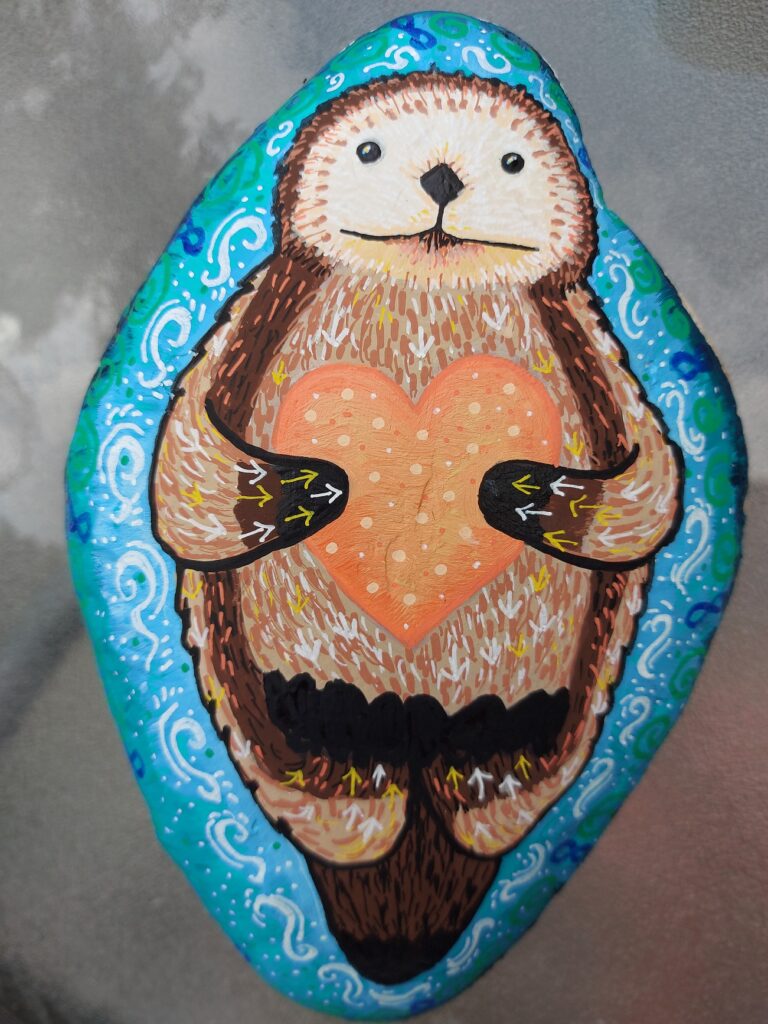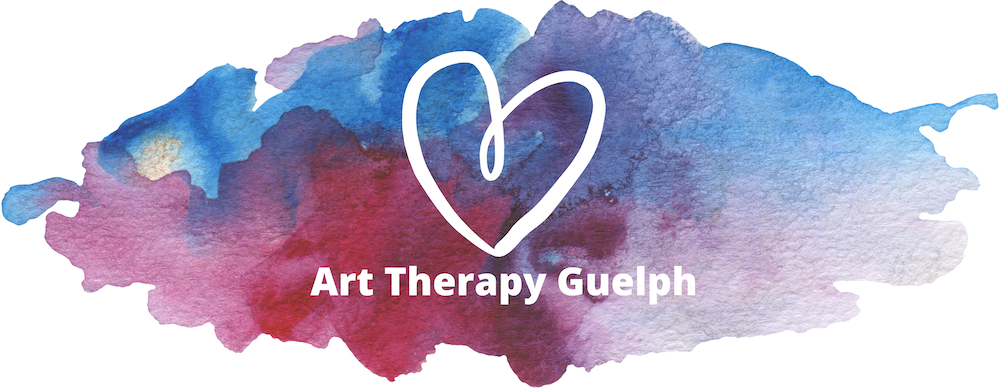
Self Love Otter, Acrylic Paint on Rock
In art therapy, discussions around “self-love” frequently come up. It is a difficult concept for some to embrace. The saying, “You cannot love others unless you love yourself” often doesn't make sense because people do love their family, friends and pets. Some think that it is being full of oneself or staring at their own reflection professing their love for themselves or tooting their own horn. I would like to redefine self-love as self-care, self-compassion and standing in one’s own truth.
Self-love is self-care. This is providing our self with mental, emotional and physical care that is restorative rather than depleting. There is overlap between all forms of body and mind self-care because we are a whole being, not one compartment. The leading cause of our need for more self-care is both emotional and physical stress. Advertisers would like us to believe that you have to spend money on self-care such as subscribing to netflix, spa treatments or shopping. It is not like that at all and it is pretty simple. Some examples of self-care are:
• Taking time for quiet. Turn off the television, phone and radio. Create a quiet space for reflection and meditation.
• Journaling our feelings
• Connecting to friends and family for support
• Leaning into our emotions to understand them better
• Getting 7 to 8 hours of sleep every night
• Taking time for a daily walk
• Enjoying nature
• Practicing yoga or deep breathing
• Engaging in creative projects like sewing, writing, colouring, making art, playing music or cooking
• Eating regularly and staying hydrated
• Choosing healthy foods such as fruits and veggies
• Reaching out for help when you are struggling
Self-love is self-compassion. It is not thinking that you are perfect in every way. It is accepting that no one is perfect and everyone makes mistakes. Self-love is recognizing when your inner critic gets too loud and turning down its volume. It is speaking to yourself kindly when you recognize you are suffering, feel inadequate or imperfect. Through self-observation and recognition of one’s thoughts rather than denying them, people can recognize when they need more tender loving care.
Self-love is standing in your own truth. It is saying what you need. It is speaking up when things don't feel right to you. It is not doing things that go against your principles. It is listening to your intuition and setting boundaries with others. It is being your authentic self.
Thus self-love is actually self-care, self-compassion and standing in your own truth. It is not looking at your reflection and saying adoring things. It is offering yourself loving kindness that you would offer others. It is taking time out to care for yourself in ways that restore you rather than deplete you. It is standing in your authentic self and setting boundaries that respect your needs. Self-love is the key to optimal emotional health and happiness.
Heather Caruso is an art therapist from Guelph Ontario. For more information go to www.arttherapyguelph.com or contact us.
